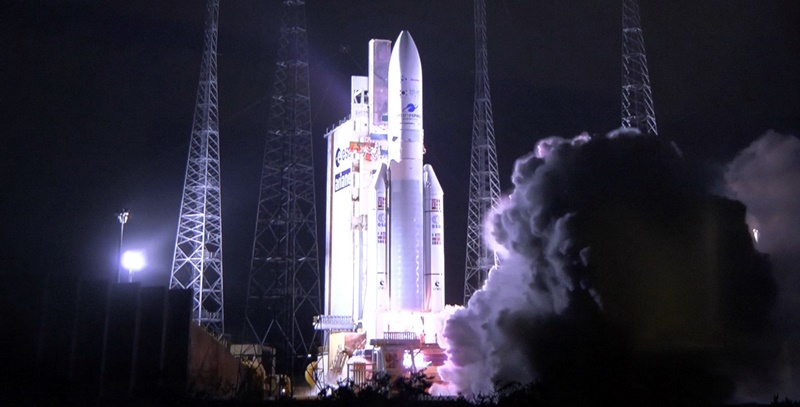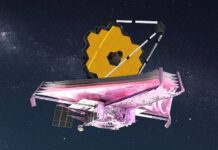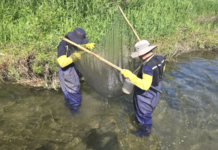
The world’s first geostationary satellite for monitoring oceans and the environment, the Cheollian-2B, on Feb. 18 is launched from the Guiana Space Center in French Guiana at 7:18 a.m. (Ministry of Science and ICT)
By Jung Joo-ri and Kim Hwaya
Korea has launched the world’s first geostationary satellite for monitoring oceans and the environment, the Chollian-2B.
The Ministry of Science and ICT on Feb. 18 said the satellite, carried by the rocket Ariane-5 and developed with Korean technology, was launched the same day from the Guiana Space Center in French Guiana at 7:18 a.m. The satellite separated from its launch vehicle about 31 minutes after takeoff at an altitude of 1,630 km and made its first contact with Australia’s Yatharagga Satellite Station at 7:55 a.m.
The Korea Aerospace Research Institute (KARI) confirmed that the satellite’s overall condition (including its main body) was fine and that the Chollian-2B entered its target transfer orbit.
Developed by the related think tanks KARI and the Electronics and Telecommunications Research Institute since 2011, the Chollian-2B is tasked with monitoring fine dust in East Asia including the Korean Peninsula and collecting 26 categories of observational data on oceans such as red tide, plankton, sea fog and sea ice.
Having entered its target transfer orbit, the satellite will move to its final geostationary position at an altitude of 36,000 km through five inter-orbital transfer stages over the next two weeks. After entering its final position, it will undergo orbital test processes in a few months.
The Chollian-2B will officially start providing data on oceans from October and air quality forecasts from next year.
Vice Minister of Science and ICT Jeong Byung-seon said, “Through the successful launch of the Chollian-2B, active support will go toward the development of advanced satellite capabilities to convey to the private sector and boost our economy.”
etoilejr@korea.kr























